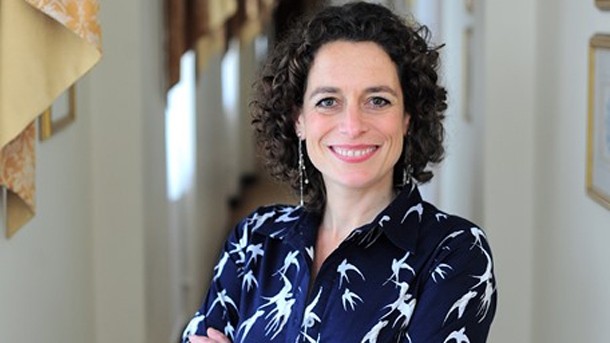Technology could help attract youth into industry, says Hotel Inspector Alex Polizzi

Admitting she personally preferred traditional ways of providing hospitality, Polizzi pointed out that technological advances could potentially help attract young people into the industry, after calling recruitment, training and retention ‘the greatest challenge’.
“In the best case scenario, some of this new technology will make the hospitality industry more attractive to new recruits, who still dread the long hours, low wages and often antisocial shifts that bedevil our reputation.
“But as I see it, that very human need of conversation, face to face or at least voice to voice, shows that whatever the advances we make in terms of innovation, our real challenge is to go on in investing in our staff and training them properly, as technology hasn’t made us and our traditional skills obsolete quite yet,” she said.
She explained that no one can ignore the way technology is changing the industry, and that all businesses need to change to remain relevant, but that replacing front desks with check-in machines for example made the customer experience more impersonal.
“I am glad that checking in and checking out are simplified, but I have never found a good substitute for a smile.”
Remembering staying at three of London’s ‘swankiest’ hotels and not being able to work out the lighting system at any of them, she also admitted to ‘loathing’ the prospect of iris recognition, and called access to bedrooms through mobiles apps ‘a threat’.
Dilemma
However, Polizzi recognised the need for new technology, particularly to appeal to business travellers, “for whom interaction with people is not only irrelevant, but unforgivably time consuming”.
She explained that mixing technology and customer service has therefore become “a pressing dilemma”, and that becoming more efficient and reducing staffing costs without compromising customers’ individual experience was a challenge for hoteliers.
“Everybody and at every price level is looking for the same benchmarks of customer service: are they getting value for money, are they being treated as individual, is their loyalty appreciated and rewarded?
“I think it’s genuine customer service in these tough times that makes a difference between businesses that survive and thrive and those that close.”
Review sites
Polizzi expressed ‘reservations’ about the multiple review sites people increasingly base booking decisions on.
“With this new ability to share information so quickly and comprehensively, the guest experience is trumpeted far and wide and it has subsequently greater impact on further purchasing decisions.
“These days, everyone considers themselves a critic,and many customers seem to have lost the ability to complain face to face, preferring to complain at great length in writing and often anonymously,” she said.
She urged hoteliers to leave no review unresponded to, and advised them to remain professional, remove their ego from comments, and remember that criticism of their business is not the same as criticism of their person.
Marketing
Polizzi also pointed to the benefits of technology in terms of hotel marketing.
“Every business needs to sell its products and services and in this arena, technological advances are particularly interesting. It is still passion and creativity that build loyalty in a brand but new technology means that the speed and reach of a campaign can change dramatically. A strong idea can quickly gain huge coverage with the many different ways consumers access media.”
But she reminded the audience that even in marketing, intuition still played a big role in estimating the success of a campaign, proving that “humans are still a very large part of the equation”.























